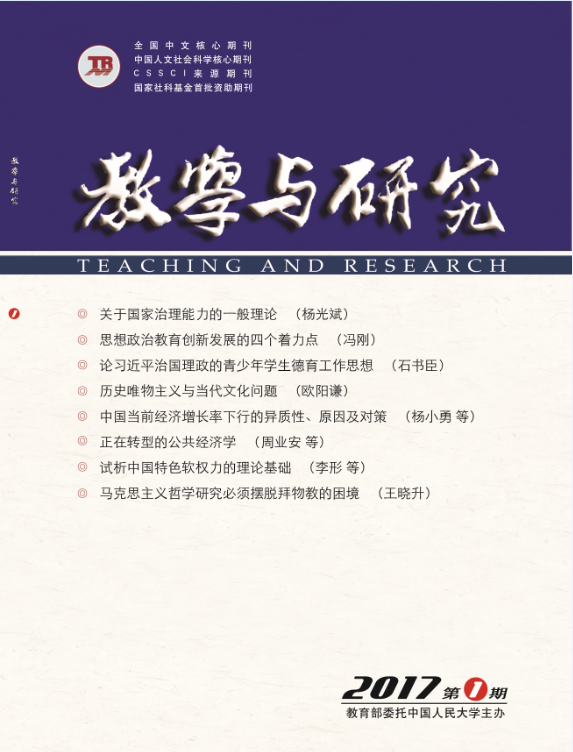|
|
On the General Theory of State Governance——A New Paradigm to Explore the Study of World Politics (Comparative Politics)
Yang Guang-bin
2017, 51 (1):
5-22.
DOI:
The value of social science lies in its response and solutions to the times. There is an urgent need for the Comparative Political Science to find out the new theme and new paradigm to replace the old ones. In view of the failure of the transformation paradigm, namely the universality of “invalid democracy” after the “third wave of democratization”, the Western democracy also put forward a variety of governance theory. But these theories are aimed at serving the needs within the western countries rather than serving the actual needs of developing countries. This thesis emphasizes that, even in the era that “governance” is the political theme, the core of governance is still the issue of governance capacity, and the premise of understanding the theory of state governance capacity can not be separated from the theory of state power. The basic side of the state power and its inherent logical relations directly influence the rise and fall of the great powers, which is the clue of the “great history”. According to this, the state governance capacity is the ability to coordinate the relationship between state power, which is composed of “institutional absorptive capacity, institutional integration force and policy execution”. Different from the research paradigm of “creating problem” in the first 60 years of the Comparative Political Science, the pursuit of the theory of state governing ability is focused on “solving the problem ”. To study the world politics with the theory of national governance capacity we can find that different countries have their own advantages and disadvantages at different stages, and they are all faced with different levels of governance crisis. Therefore, there is no solution applicable to all countries. The theory of Chinese state governance capacity is based on the development of Chinese history, culture and politics. It has an academic style of Aristotle political science rather than a theory of supremacy of concept.
Related Articles |
Metrics
|



